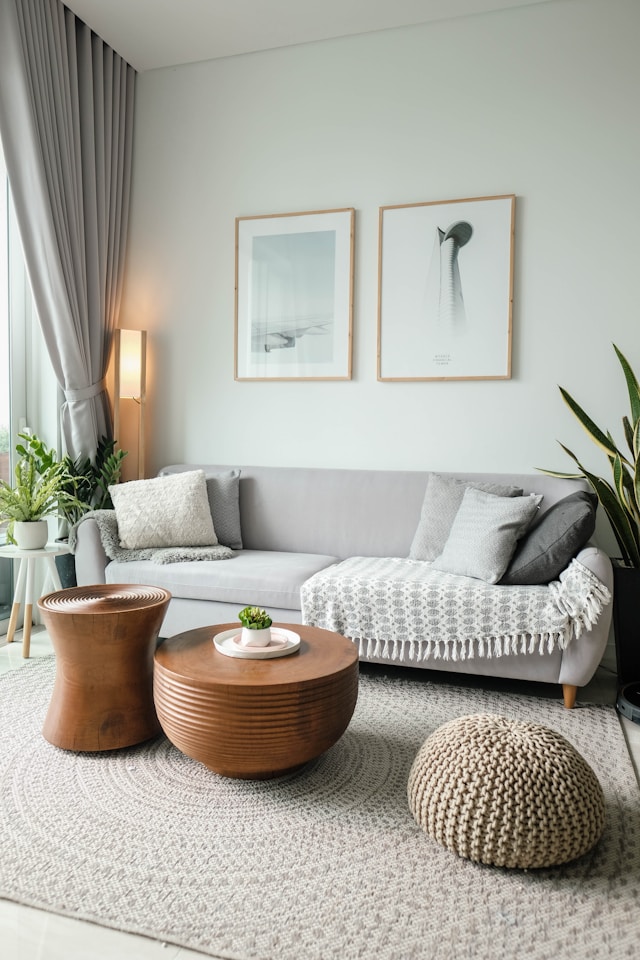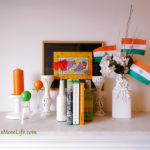At a time when sustainability is more than just a buzzword, transforming your home into an eco-friendly sanctuary has never been more important or rewarding. Integrating organic materials into your living space demonstrates your dedication to the environment and well-being. Be it furniture, textiles or decor items, organic elements bring warmth, coziness, and authenticity into any living space.

Photo by Minh Pham on Unsplash
Understanding Organic Materials
Before investing in organic home decor, it’s important to gain a full understanding of what organic materials entail. Organic materials generally refer to substances derived from living organisms without chemical additives and synthetics. Think natural woods, cottons and wool that have reduced chemical loads while having less impact on the environment. When selecting organic materials make sure they meet certifications such as GOTS for textiles or FSC for wood to ensure you’re making sustainable decisions.
Start with the Basics: Furniture
One of the easiest and most impactful ways to incorporate organic materials is through furniture made of sustainably sourced wood, such as from reclaimed sources or certified sustainable ones. Not only will this help lessen deforestation but it’ll add charm and character to your space. Deep wooden shelves bring an earthy charm while natural wood dining tables feel cozy like gatherings in the forest. When considering organic cotton cushions or natural latex mattresses as companion materials it helps create an environment-friendly home that represents your values. Remember it’s not all about aesthetics, creating an environment reflects who you are.
Textiles: Softening Your Space
The range of organic textile options is vast. Ranging from cotton and linen, through wool and hemp, organic fabrics offer eco-friendlier yet often more durable and breathable options than their synthetic equivalents. A great place to begin would be by switching out regular bedding and towels with organic varieties, not only will you notice a difference in feel but also the environmental impact. Organic textiles also add pops of color with cozy blankets, vibrant rugs or eye-catching drapes that both show off style while protecting Mother Earth.
Sustainable Decor: Making Small Changes with Big Impact
Incorporating organic materials doesn’t stop at furniture and textiles, decor also plays an integral role. Wall art made of natural fibers or sculptures made from sustainably-sourced wood are great examples. Houseplants also bring the outdoors in by improving air quality while adding liveliness. Pothos, snake plants and peace lilies thrive with minimal care, providing you with all their benefits without needing an expert on gardening to enjoy them. Opt for LED bulbs when it comes to lighting, not only will they last longer and consume less energy. Consider making small changes that reflect your values, every bit counts towards creating a greener planet.
DIY Decor Using Organic Materials
Crafting decor items out of organic materials is an engaging way to bring personality into any room, as you will be creating items tailored specifically for you and saving the planet at the same time. Consider crafting organic beeswax candles, not only can these add warmth but are chemical-free as well. Additionally, using natural elements such as branches or stones into creative home accents add a personal touch while simultaneously upcycling items that would have otherwise ended up in landfill.
Prioritize Quality Over Quantity
A key principle of eco-friendly decor is prioritizing quality over quantity. Instead of filling your home with mass-produced items that won’t stand the test of time, choose pieces crafted from sustainable materials that offer lasting beauty. This way both your environmental impact and budgetary expenses are reduced by eliminating frequent replacement needs. Textile-wise, consider selecting durable organic cotton or linen fabrics which not only contribute to sustainability but add a luxurious feel. Furthermore, support small businesses and local artisans who use eco-friendly practices in their production processes.
Kitchen: A Prime Location for Organic Options
Your kitchen can also serve as an incubator of eco-friendly materials. Choose sustainable bamboo or stainless steel cookware and utensils, as well as stylish cotton or linen kitchen towels from various brands that combine practicality with style. When it comes to food storage, using glass containers instead of plastic ones shows your commitment to organic living while adding better flavor and nutrition value to meals. Organic produce not only supports sustainable farming practices but can also improve meals by increasing flavor intensity and nutritional density.

Photo by Tina Dawson on Unsplash
Conclusion
Bringing organic materials into your home can be an exhilarating journey that not only beautifies it, but also aligns with a sustainable lifestyle. Even small changes can have significant ramifications, be they investing in an organic cotton throw or undertaking a crafty DIY decor project. Remember each choice counts and embrace organic living to create homes that nurture both ourselves and the planet, after all a little greenery makes this world more beautiful.




These are really useful ideas and a great way to integrate more natural and sustainable items into our homes (something I am looking into). Thanks for this!